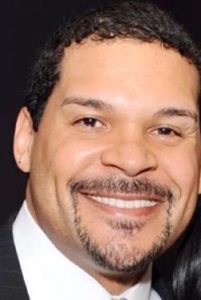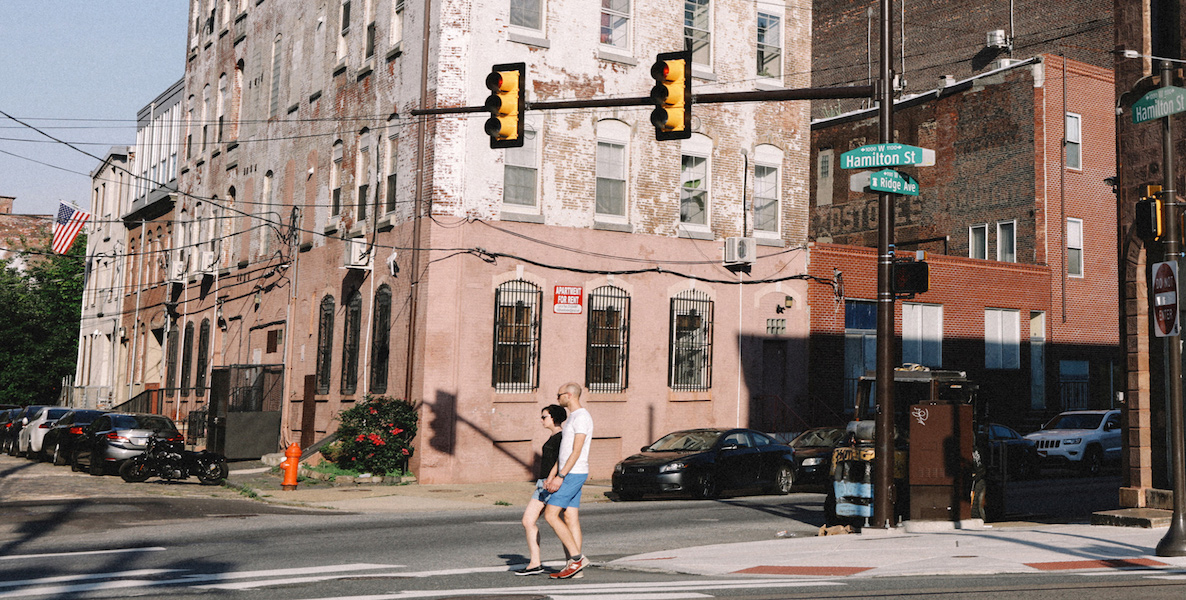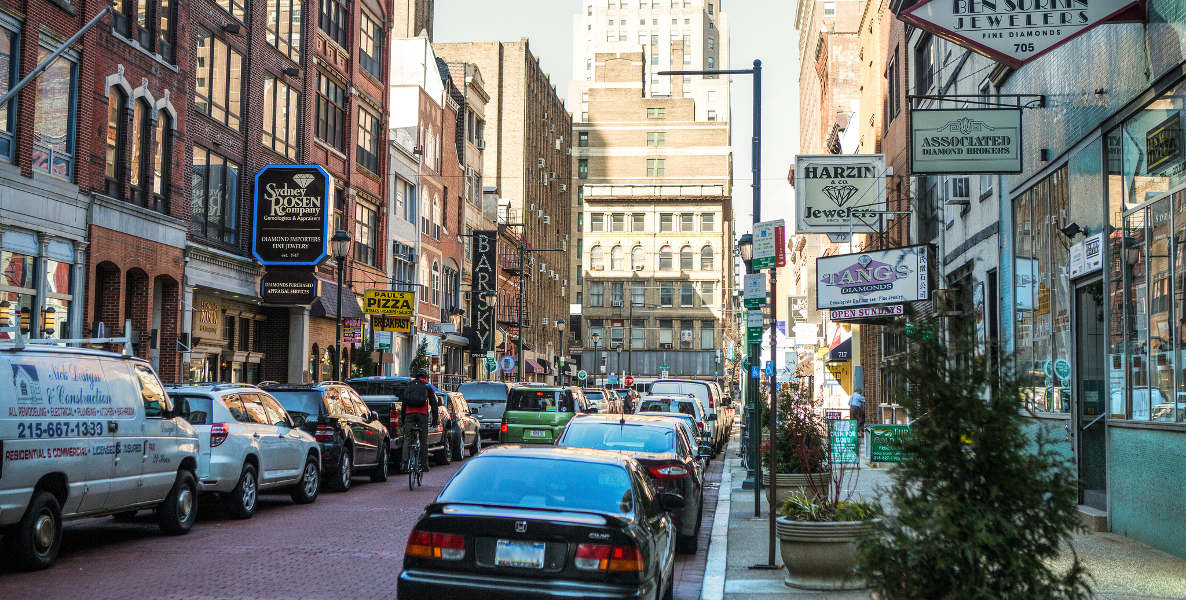Reality Check recently had Drexel University’s Harris Steinberg, newly minted chair of the city’s sparkling Historic Preservation Task Force, on the show for an incisive interview. But back in April when we spoke, we didn’t really press him about diversity.

At the time, the Task Force had just popped up, a fresh project among many for the Mayor to show he was driving Philly through its eerie-feeling boom. Steinberg was convincing enough that the city had truly taken diversity under serious consideration while shaping the committee. And, for the most part, it really sounded like Steinberg himself was convinced that wasn’t something they needed to worry about.
But we’ll need to follow up: The Task Force is not exactly all that diverse.
Interestingly enough, perhaps as a way to mute any critique on the diversity front, the Task Force did put accomplished black architect Dominique Hawkins in the position of Vice-Chair. That obviously helps—because if you’re rolling out a major effort to historically refurbish a city as black as Philadelphia, you best believe you need a black planning professional to lead it.
But, in a city that’s nearly 45 percent black—with a history and old architecture full of Black American firsts in it—it’s also a good idea to make sure the Task Force adequately represents the city’s multicultural make-up. On that score, the Task Force fails. Out of its 29 members, only two appear as African American (one is the female vice-chair, and the other is male); another two appear as Latinx (male and female)—and there are no Asians. In contrast, there are 18 white men and six white women.
The decision was made that not only would a diverse range of Philadelphians fail to show interest in what happens to the historic structures and neighborhoods that have been a central piece of their community DNA, but that such level of interest wasn’t needed anyway.
That presents a serious problem because the Task Force is a big deal. It is one crucial component to mapping out the city’s current revival as an East Coast gem and economic come-up rivaling other metro/regional-powerhouses like New York and Chicago. Anything dealing with a restoration of this old city’s vast historic foundation has no choice but to involve more folks of color.
Instead, the Task Force presents us with yet another white-male heavy cookie cutter approach to urban planning. In a city that’s nearly half black (and 15 percent Latino), it defies logic that the city didn’t think to increase African American participation on the panel beyond a measly 6 percent. It can’t be that the city is 35 percent white and yet the latest effort leading Philly’s new urban renaissance is about 83 percent white.
The fact that the Mayor found it necessary to create such a Task Force reflects an expectation that the city is undergoing an enormous shift in the way its skyline and neighborhoods look. A quick glance at the public mission statement hints at that: “ … to help the City reassess how Philadelphia preserves its historic resources.” Which means to “preserve” in the face of a major residential and commercial real estate boom.
Still, we get it: The theme of the Task Force, given its very specialized subject matter, is to let the architects, preservationists and real estate developers handle it. This is their domain; only they know how to advise or inform on these type of decisions, not the 40 percent of Philadelphians who struggle economically or the organizations, institutions and neighborhoods who either support or house them.
And forget about the city’s sprawling generations-old black cultural, arts, and civics community. Historic preservation isn’t necessarily in the wheelhouse of average Philadelphia citizens—and, the perception is, much less black and brown Philadelphia. The decision was made that not only would a diverse range of Philadelphians fail to show interest in what happens to the historic structures and neighborhoods that have been a central piece of their community DNA, but that such level of interest wasn’t needed anyway.
This is tragic, especially considering historic properties—including homes or structures in some less than affluent ‘hoods throughout Philadelphia—are potentially eligible for various federal tax credits and grants, such as the National Register of Historic Places Program. On top of that, there’s a growing space of endowments, foundations and other philanthropic efforts providing funds to organizations and individuals. If you’re living in a home that’s old enough for that historic designation, and it’s in desperate need of a restoration you can’t afford, it’s very likely either the federal government or some obscure grant-dropping association or foundation will spot you.
We’re not exactly sure what possesses Philadelphia’s sizeable contingent of black lawmakers and policymakers, as well as the growing Latinx and Asian political community, not to demand their presence on the Task Force or a greater presence of diversity on the Task Force—if they are even plugged into it or know what’s going on.
But, because the city’s new Task Force has very little black or brown community representation on it, it’s highly likely you won’t know about that. There’s no sign of any participation from the black clergy or church community—institutions many residents rely on for that sort of involvement and information—and no sign, at all, of black elected officials. In fact, the only elected official on the Task Force is white District 1 Councilman Mark Squilla.
We’re not exactly sure what possesses Philadelphia’s sizeable contingent of black lawmakers and policymakers, as well as the growing Latinx and Asian political community, not to demand their presence on the Task Force or a greater presence of diversity on the Task Force—if they are even plugged into it or know what’s going on.
I have nothing against the principle of a historic preservation task force—philosophically, it’s a great thing to put this old city on a path to world class urban greatness. I’m all in. But, I’m not a fan at all of the non-inclusionary method. If anything, the Task Force smells more like a very sophisticated extra prelude to citywide gentrification and yet more displacement of undesirable city residents. Since Philly is pretty much in the grips of a housing bubble, that’s the next natural thing for the real estate and development industry to do in an effort to flush out people who are challenged by tough economic circumstances and bring in more people who aren’t.
The Task Force might say that’s not the case, especially since they’ve scheduled so many public hearings (that few folks are aware of) through 2018 for citizen input. But the message should come from the composition of this panel. If the city truly wanted full resident input, it would have made a better effort at that from the launch. Might be time to head back to the drawing board.
Charles D. Ellison is Executive Producer and Host of “Reality Check,” which airs Monday–Thursday, 4-7 p.m. on WURD Radio (96.1FM/900AM). Check out The Citizen’s weekly segment on his show every Tuesday at 6 p.m. Ellison is also Principal of B|E Strategy, the Washington Correspondent for The Philadelphia Tribune and Contributing Politics Editor to TheRoot.com. Catch him if you can @ellisonreport on Twitter
Header Photo: Neal Santos




